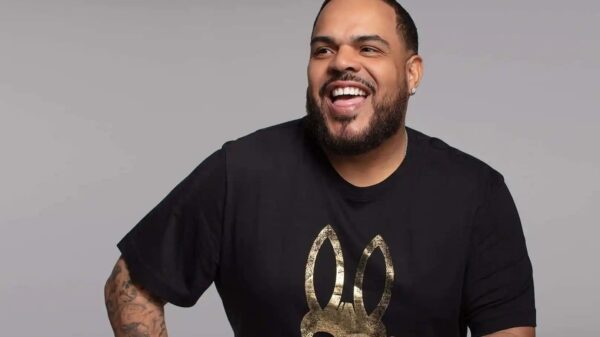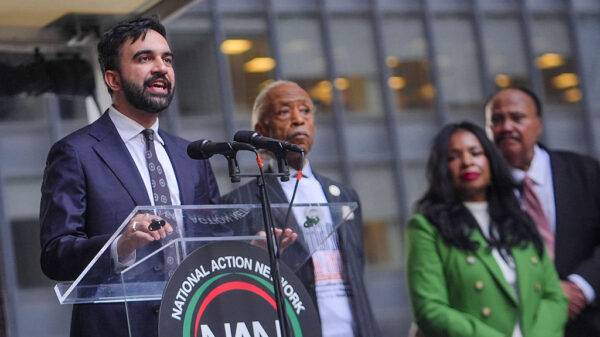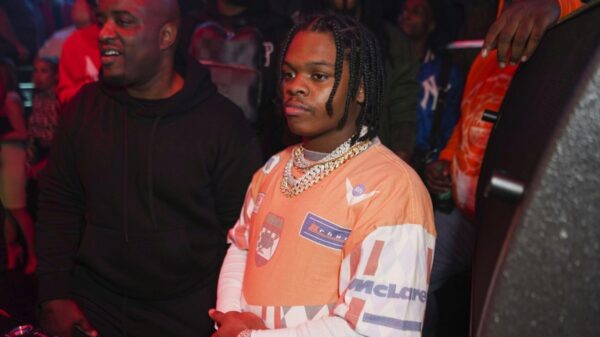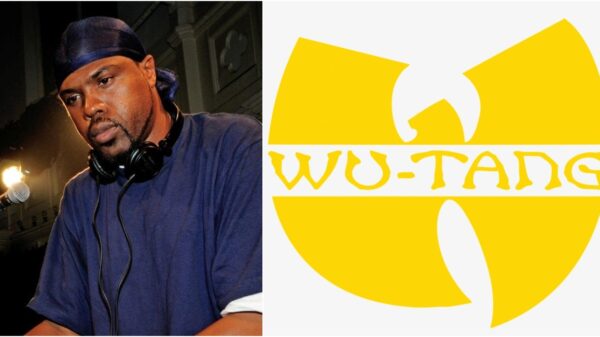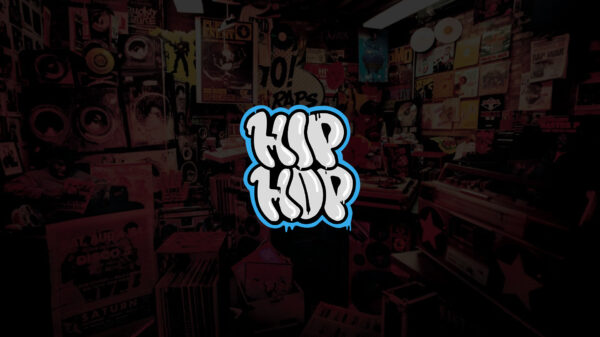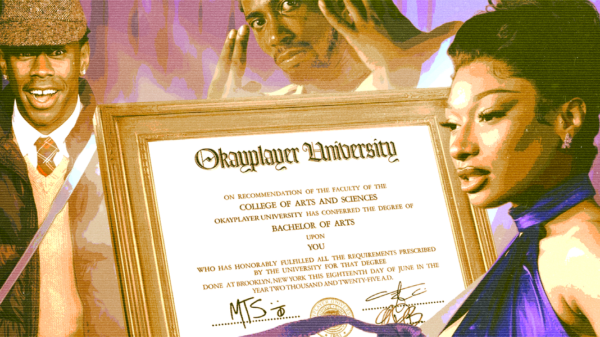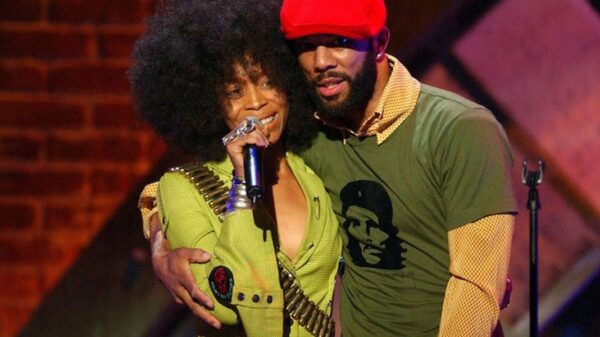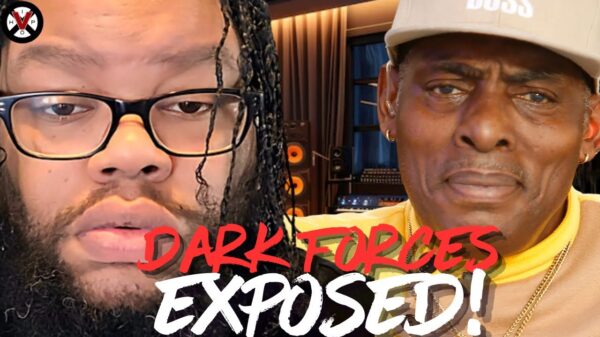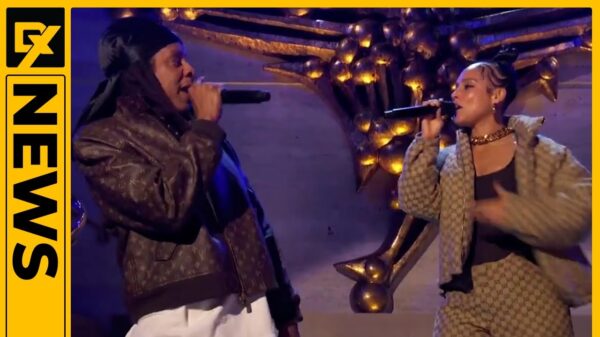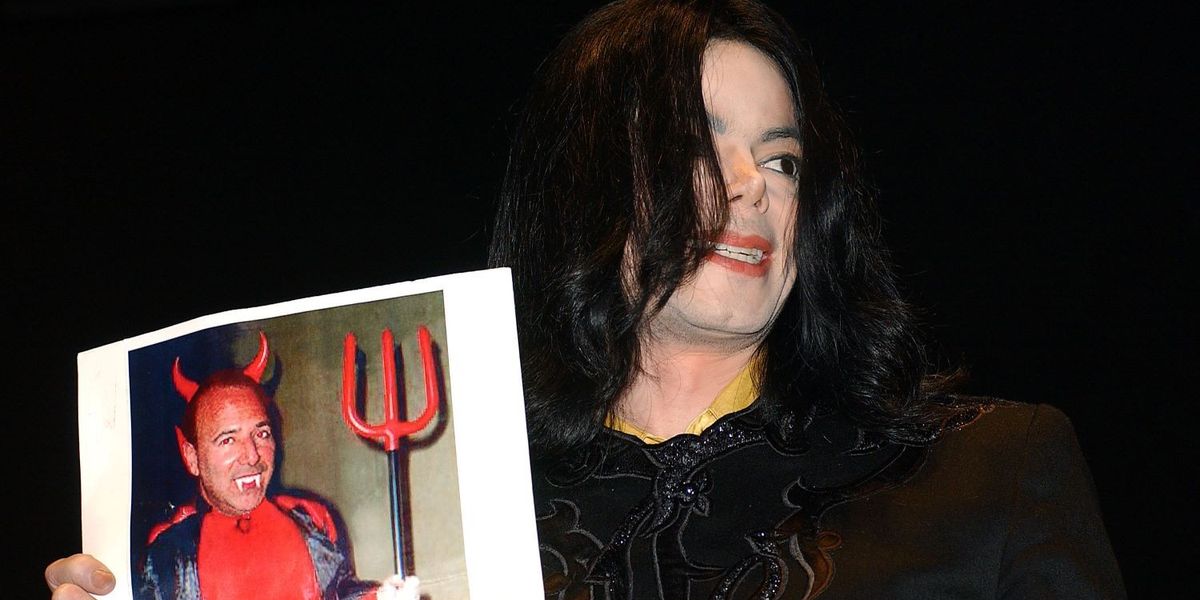On “Examine the Rhyme” from A Tribe Referred to as Quest’s 1991 vanguard The Low Finish Concept, Q-Tip memorably quipped, “Business Rule No. 4080: Document firm persons are shady.” There are legions of artists who would agree with the emotions of The Summary, who’ve encountered the evils of such financial exploitation.
The file enterprise has (allegedly) scammed numerous musicians out of their masters, publishing rights, royalties, and nearly every part else below the solar. Artists who lacked the correct information and/or — extra importantly — authorized illustration can be taken benefit of by labels and publishers with complicated contracts.
Whereas America was caught within the wave that was rock and roll music within the ‘50s, Black musicians have been unsurprisingly gate-kept from and exploited by labels all too desirous to revenue off their blood, sweat, and melodies. Chuck Berry, broadly thought to be the founding father of the style, launched his profession along with his iconic tune “Maybelline” on Chess Data. Nonetheless, Alan Freed (a radio disc jockey credited with really popularizing the time period “rock and roll”) and Russ Fratto (the owner of Chess Data, the label Berry was signed to) have been credited because the tune’s co-writers, giving them a share of the royalties. For many years, Berry persistently fought a authorized battle to reclaim possession of his work, and in 1986, his efforts have been lastly acknowledged when he was formally awarded full credit score for the tune.
Little Richard’s masterpiece lined different pockets
Equally, in 1956, Little Richard offered the publishing rights to his traditional “Tutti Frutti” to Specialty Data proprietor Artwork Rupe for a mere $50. Moreover, his contract would solely pay him lower than one cent for every file offered, considerably lower than the usual 3-5 % price that artists obtained. Whereas the 1955 traditional “Tutti Frutti” would go on to promote over 500,000 copies, Little Richard would solely obtain $25,000 from these gross sales. So as to add insult to damage, Richard wouldn’t obtain royalties even when his music was lined by different artists, notably Pat Boonein 1956. In 1984, Little Richard filed a $112 million lawsuit towards Specialty Data, claiming he hadn’t obtained royalties since leaving the label in 1959. He ultimately settled out of court docket for an undisclosed quantity, and later, after Michael Jackson bought ATV in 1985, which, amongst with The Beatles, owned the rights to Little Richard’s publishing — Jackson returned these rights to him.
Prince and Michael Jackson missed out on tens of millions
Prince performs on stage carrying ‘Slave’ tattoo, on ‘The Final Reside Expertise’ tour at Wembley Enviornment on March 4th, 1995 in London, United Kingdom.
Picture by Pete Nonetheless/Redferns.
Prince and Michael Jackson have been two of probably the most critically acclaimed and commercially profitable artists of all time. But each legends have been pressured to battle their labels over contracts that exploited their abilities and denied them a justifiable share of the income from their work.
Prince endured a four-decade battle with Warner Music, all stemming from when he signed his first deal in 1977 on the naive age of 18. Following the large success he skilled within the Eighties, The Purple One would ink a $100 million take care of the label in 1991, which on the time was thought of the most important recording contract in historical past. However issues soured rapidly, as Prince felt that below the take care of Warner, they owned and managed his title in addition to any music launched below that title. Because of this, Prince would change his title to an unpronounceable emblem (known as the “Love Image”) and can be known as “The Artist Previously Identified As Prince,” and through reside appearances and performances wrote “Slave” on his face in protest. To get out of the deal, Prince must fulfill his contractual obligations with a number of album releases between 1995 and 1996: The Gold Expertise, Chaos and Dysfunction, Emancipation, and the soundtrack to the movie Woman 6. As soon as free of his deal, Prince turned a vocal advocate for artists’ rights, subsequently choosing distribution offers with labels slightly than conventional file contracts till his passing in 2016.
Following his legendary run from 1979’s Off the Wall to 1995’s HIStory: Previous, Current and Future (launched by way of Epic Data, a Sony label), Jackson grew more and more vital of the label and its then-CEO Tommy Mottola, accusing him of “racist” and “manipulative” enterprise practices after what he felt was the mishandling of his 2001 album Invincible. He additionally expressed frustration over the discharge of the compilation album Quantity Ones in 2003. In a twist of irony, in 2016 Sony acquired the Jackson property’s remaining 50 % stake in Sony/ATV for $750 million, securing full possession of the publishing catalog, after beforehand buying half of Jackson’s personal music catalog for a reported $600 million.
Jackson would cross away in 2009, on the age of fifty.
De La Soul’s years of missed streaming income
De La Soul arrive on the 2004 MTV Video Music Awards on the American Airways Enviornment August 29, 2004 in Miami, Florida.
Picture by Frank Micelotta/Getty Pictures.
De La Soul is a cautionary story for a way a shoddy file deal can have a devastating impression within the streaming period. For years, the Native Tongues trio was embroiled in an advanced contractual dispute over pattern clearances with their label Tommy Boy Data after they sued for copyright infringement. After Tommy Boy reacquired the rights to their first six albums from Warner Bros., the group alleged that label founder and CEO Tom Silverman supplied them a 90/10 revenue cut up forward of plans to deliver their music to streaming platforms in 2019. The lengthy shadow of their early contracts meant the group missed out on years of streaming income, as their music remained absent from digital platforms and possession of their grasp recordings remained out of attain. Whereas De La Soul was capable of attain a deal with Reservoir Data to launch their music and eventually personal their masters David Jude Jolicoeur — often known as Trugoy the Dove, Plug Two, or simply Dave — would cross away in 2023, mere weeks earlier than their full catalog formally hit streaming platforms.
Clipse slips from dangerous label deal to dangerous label deal
For Non-Editorial use please search approval from Vogue Home) No Malice and Pusha T of Clipse attend the Louis Vuitton Menswear Spring/Summer time 2025 present as a part of Paris Vogue Week on June 18, 2024 in Paris, France.
Picture by Julien M. Hekimian/Getty Pictures.
Pusha T and Malice, higher referred to as Clipse, have endured extra false begins than a deaf track-and-field runner, thanks largely to label points. After their unique debut album, Unique Audio Footage, was shelved in 1999, they lastly launched their official debut, Lord Willin’, in 2002 by the Neptunes’ Star Trak Leisure, below Arista Data. A label restructuring in 2004 shifted Clipse to Jive Data, whereas Star Trak moved below Interscope, successfully trapping the Thornton brothers in a music business Phantom Zone. 4 years after Lord Willin’ — and following two critically acclaimed We Acquired It 4 Low cost mixtapes — Clipse sued Jive and ultimately negotiated a deal to launch their long-delayed sophomore album, Hell Hath No Fury, by their very own Re-Up Gang Data imprint in 2006. In 2007, they parted methods with Jive, signing a brand new take care of Columbia Data.
Although Pusha T’s erstwhile rival Lil Wayne has been tied to Money Cash Data since his teenage years, he too has discovered himself entangled within the predatory practices of the music business. In 2015, he sued Money Cash for a whopping $51 million, citing their refusal to launch his album Tha Carter V, unpaid royalties, and management of his Younger Cash Leisure (at the moment the house to Drake and Nicki Minaj). Finally, Wayne and Birdman would come to an settlement, and The Carter V was lastly launched in 2018, seven years after its predecessor.
Megan Thee Stallion and 1501 Licensed Leisure
Megan Thee Stallion performs at Coachella Stage in the course of the 2025 Coachella Valley Music and Arts Pageant on April 20, 2025 in Indio, California.
Picture by Arturo Holmes/Getty Pictures for Coachella.
The problems between Megan Thee Stallion and her former label, 1501 Licensed Leisure, are well-documented. In 2018, Megan signed with former baseball star Carl Crawford’s imprint, reportedly receiving a modest $10,000 advance — a determine thought of properly beneath business requirements. She later claimed the deal was a “360 settlement,” permitting the label to gather a share of her earnings past album gross sales, together with income from reside performances and merchandise. Tensions escalated when Megan sued 1501 Licensed Leisure, after the label disputed whether or not her 2021 launch One thing for Thee Hotties certified as an official album below her contract. In the meantime, the label’s actions reportedly stalled the discharge of her new music. After a years-long court docket battle, Megan and 1501 agreed to a settlement in 2023, with Megan a couple of months later reaching a distribution take care of Warner Music to launch music by her personal imprint, Scorching Woman Productions, whereas retaining full possession of her masters and publishing rights.
Dangerous file offers appear extra widespread than not
The members of N’Sync arrive on the forty third Annual Grammy Awards at Staples Heart in Los Angeles, CA on February 21, 2001.
Picture by Frank Micelotta/Getty Pictures.
Throughout genres, exploitative contracts have ensnared a few of music’s most iconic abilities — lots of whom might have remained unheard if not for their very own outcry and the intervention of key business energy gamers. Earlier than coming to prominence, Van Morrison discovered himself caught in a file deal that practically derailed his burgeoning profession. Billy Joel’s ten-album take care of Household Productions in 1971 was so deplorable that — due to signing away his publishing and recording rights — his debut album Chilly Spring Harbor was marred by a mastering mistake that altered its sound, whereas Joel remained powerless to do something till the late file government Walter Yentikoff bought his publishing rights and returned them to him. Taylor Swift famously launched her “Taylor’s Model” re-recordings after her former label offered the masters of her first six albums to Scooter Braun for a reported $300 million. In 1999, *NSYNC sued each their former label, Trans Continental Data (later RCA Data), and supervisor Lou Pearlman for fraud and misrepresentation. Kesha was caught in a virtually decade-long authorized conflict along with her file label, Kemosabe Data, and Dr. Luke, the proprietor of the label, over her six-album contract. Kesha would additionally accuse Luke of sexual, bodily, and emotional abuse. Each events settled in 2023.
So long as there are gifted artists, there’ll all the time be those that will attempt to exploit their presents for monetary achieve. In in the present day’s music local weather, artists are greater than conscious of the pitfalls of artist-unfriendly contracts and have extra entrepreneurial alternatives than the earlier technology of musicians. Regardless of this, nevertheless, highly effective file labels and music firms nonetheless have the means to finesse artists out of their creative livelihoods. When contemplating the file business’s lengthy observe file of exploiting artists, the phrases of Prince stay true: “In case you don’t personal your masters,” Prince stated in 1996, “your grasp owns you.”

